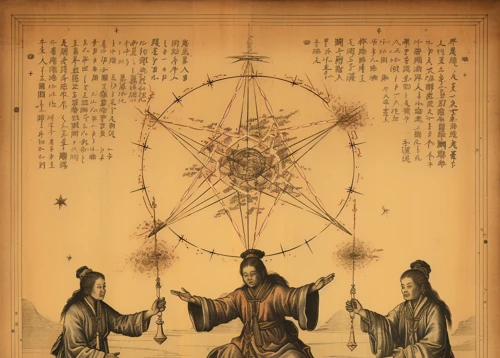Understanding Divination
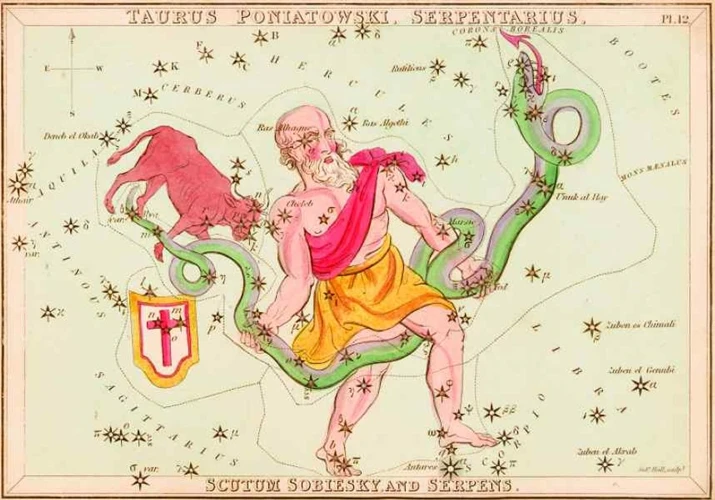
1. Ancient Origins
- The practice of divination has ancient origins, dating back to the earliest known human civilizations.
- People in these ancient societies believed that the world was filled with spiritual forces and that by interpreting signs and omens, they could gain insights into the future.
- One of the ancient origins of divination can be traced back to Mesopotamia, where clay tablets dating back to around 3000 BCE have been found, containing records of divination practices.
- In ancient Egypt, divination played a crucial role in decision-making and was often performed by priests who used various methods like interpreting dreams or observing the behavior of animals.
- Ancient Chinese civilizations also had a long-standing tradition of divination, such as the I Ching or Book of Changes, which involved the casting of yarrow sticks or the use of oracle bones.
- In ancient Greece, divination was widespread, and oracles held significant authority. The most famous oracle, the Oracle of Delphi, was consulted by individuals seeking advice from the gods.
- Divination practices were also prevalent in ancient Rome, where Augurs were appointed by the state to interpret the will of the gods through studying the flight patterns of birds or examining the entrails of sacrificed animals.
2. Methods of Divination
3. Role of Diviners
Diviners played a vital role in ancient societies, as they were believed to have the ability to communicate with the divine and interpret messages from the spiritual realm. They were highly esteemed individuals who possessed specialized knowledge and skills in various forms of divination. Their primary responsibility was to provide insight, guidance, and predictions about the future to individuals, communities, and even rulers.
Diviners were often consulted in times of uncertainty, such as before important battles, during periods of drought or famine, or when major decisions needed to be made. Their interpretations of signs, omens, and messages from the gods helped people make informed choices and navigate through challenging situations.
The role of diviners was not limited to fortune-telling. They were also sought after for their wisdom and advice on matters ranging from personal dilemmas to political affairs. Their counsel was valued and respected, as it was believed to be influenced by divine intervention.
Diviners utilized a wide range of techniques and tools in their practice. These included deciphering the patterns of animal behavior, interpreting the flight patterns of birds, studying celestial events, casting lots, and analyzing dreams or visions. They would carefully observe and interpret these signs and symbols, using their knowledge and intuition to provide meaningful guidance.
In some cultures, diviners also played a crucial role in religious ceremonies and rituals. They would perform sacred rites, offer sacrifices, or act as intermediaries between the human and spiritual realms. Their presence was believed to ensure the favor of the gods and bring blessings to the community.
The Power of Prophecy
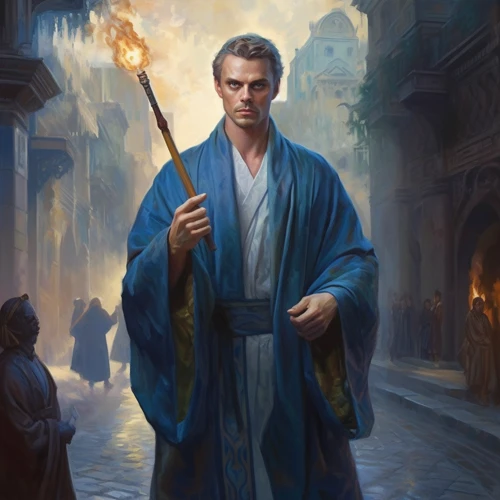
1. Prophets and Oracles
Prophets and oracles played a significant role in ancient societies as channels of divine communication. Prophets were individuals chosen or appointed by the gods to deliver messages, warnings, or predictions to the people. They were revered for their ability to tap into the spiritual realm and interpret the will of the gods. In some cases, prophets received their revelations through dreams, visions, or direct communication with deities. Their words carried immense weight and were often considered as divine truth.
Oracles, on the other hand, were sacred places or individuals who served as intermediaries between mortals and the celestial realm. The most famous oracle was the Oracle of Delphi in ancient Greece. People from all over the region would visit the oracle seeking guidance and insight into their future. The oracle would enter into a trance-like state and deliver cryptic messages, often in the form of riddles or ambiguous prophecies.
Both prophets and oracles were consulted for various reasons, including decisions about war, politics, agriculture, and personal matters. Their prophecies carried immense weight and influenced the actions of individuals and even entire civilizations. It was believed that their words were a direct reflection of the will of the gods and disregarding their counsel could lead to disastrous consequences.
2. Significance of Prophecies
3. Means of Prophecy
Mystical Practices in Different Ancient Societies
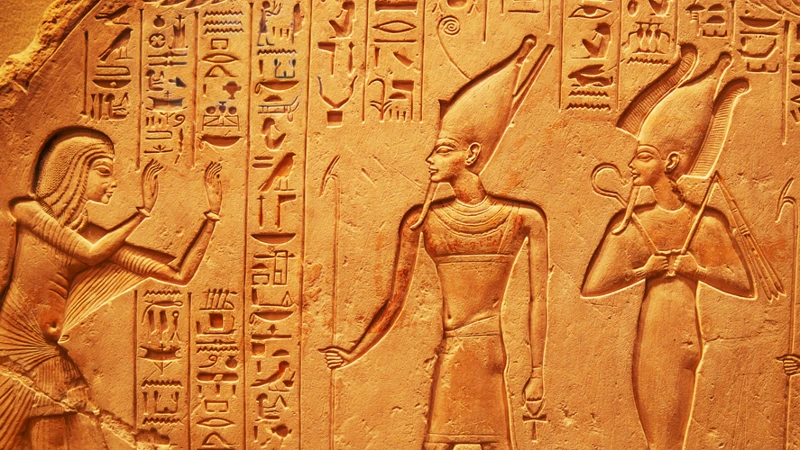
Ancient Egypt
Ancient Greece
Ancient Rome
- Augury: In Ancient Rome, one of the most prominent methods of divination was augury, the practice of interpreting the flight patterns and behaviors of birds. Specially trained priests, known as augurs, would observe the birds and interpret their movements as messages from the gods. The augurs would carefully study the flight direction, the calls, and the feeding habits of the birds to determine their significance. This practice played a significant role in the political and religious affairs of Ancient Rome, with important decisions often being made based on the interpretation of bird omens.
- Haruspicy: Another common form of divination in Ancient Rome was haruspicy, which involved the examination of the entrails of sacrificed animals, typically sheep or pigs. The internal organs, such as the liver, heart, and lungs, were carefully inspected by priests known as haruspices. They believed that the appearance and condition of the organs held symbolic messages that could provide insight into the future. This practice was particularly associated with the Etruscans and later adopted by the Romans, who considered it a vital tool for decision-making.
- Sibylline Oracles: The Sibylline Oracles held great importance in Ancient Rome. These were prophetic texts that were attributed to the Sibyls, female figures believed to possess the gift of prophecy. The Roman authorities consulted these oracles in times of crisis or uncertainty to seek guidance. The Sibylline Oracles were considered sacred and were carefully preserved by appointed priests. The texts contained divine messages and predictions that were believed to shape the course of events in Rome.
- Sortition: Sortition, a practice derived from Etruscan divination, was also prevalent in Ancient Rome. It involved drawing lots or tokens to select individuals for important roles or to make crucial decisions. The belief was that the divine forces guided the selection process, ensuring fairness and impartiality. The Roman Senate, for instance, used sortition in some instances to choose senators or allocate specific tasks.
Maya Civilization
Chinese Civilizations
The practice of divination and prophecy held great significance in the ancient Chinese civilizations. The Chinese believed that the cosmos and human affairs were intertwined, and divination served as a means to understand and align with this cosmic order. One of the most well-known methods of divination in Chinese culture is the I Ching, also known as the Book of Changes. The I Ching is a divination system that utilizes a set of 64 hexagrams, each representing a different combination of yin and yang energy. The hexagrams are derived through the casting of coins or yarrow stalks and are used to provide guidance and insight into various aspects of life, including relationships, career, and health.
Another important divination practice in Chinese civilizations is the interpretation of dreams. Dreams were considered to be messages from the spiritual realm and were believed to hold valuable insights and predictions. Popular dream interpreters, known as jue, would analyze the symbols and events in dreams and their potential meanings. People turned to dream interpretation to gain insights into their personal lives and to make decisions regarding important matters.
In addition to these practices, Chinese civilizations also relied on various forms of astrology for divination purposes. Astrology played a significant role in determining auspicious dates for important occasions such as weddings or starting new ventures. The Chinese zodiac, based on a twelve-year cycle, assigns an animal sign to each year, which is believed to influence a person’s characteristics and destiny. Chinese astrologers would use these animal signs, along with the positions of celestial bodies, to make predictions about individuals and society as a whole.
The Chinese civilizations embraced divination and prophecy as integral parts of their culture and relied on them for guidance in various aspects of life. The ancient traditions of divination in Chinese civilizations continue to be practiced and valued by many even in contemporary times.
Indian Vedic Traditions
The ancient Indian Vedic traditions placed a significant emphasis on divination and prophecy. In the Vedic period, which dates back thousands of years, divination was considered a sacred practice and an integral part of religious rituals and ceremonies. The Vedic texts, known as the Vedas, contain extensive references to divination and provide instructions on various methods of predicting the future.
One of the primary forms of divination in Indian Vedic traditions is Jyotish, also known as Vedic astrology. Jyotish is a complex system that involves the study of astronomical bodies and their influence on human life. Astrologers, known as Jyotishi, use astrological charts, birth details, and planetary positions to make predictions about various aspects of a person’s life, including their career, relationships, and health.
Palmistry, or the study of the lines and shapes on a person’s palm, is another important divination practice in Indian Vedic traditions. The lines, mounts, and other features on the palm are believed to reveal information about an individual’s character, personality traits, and future events.
Tarot reading is also popular in Indian Vedic traditions, though it has evolved over time and integrated various cultural influences. Tarot cards are used as a tool for divination, providing insights and guidance on different aspects of life.
Indian Vedic traditions also place significance on Yagnas, which are elaborate fire rituals performed by priests to invoke the blessings of deities and seek their guidance. These rituals involve the chanting of ancient Vedic mantras, offering of sacred substances into the fire, and precise coordination of various elements to create a sacred and divine atmosphere.
The Indian Vedic traditions view divination not only as a means of predicting future events but also as a way to connect with the divine, gain spiritual insight, and bring balance and harmony into one’s life. Divination and prophecy are considered sacred practices that enable individuals to navigate the complexities of life and align themselves with the cosmic energies.
Commonalities and Variances
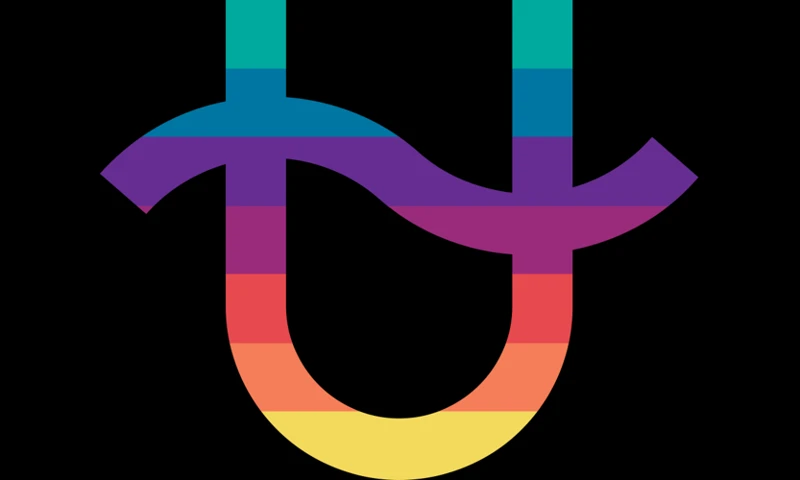
1. Symbolism and Interpretation
One of the fundamental aspects of divination across different ancient societies was the use of symbolism and the interpretation of signs and omens. Symbolism played a crucial role in divination practices, as it allowed for the communication between the spiritual and physical realms. Different symbols held varying meanings and were often connected to specific aspects of life, such as love, fertility, or success.
Ancient Egypt: In ancient Egypt, symbols such as the Ankh, the Eye of Horus, and the Scarab beetle were commonly used in divination. The Ankh symbolized eternal life and was often associated with spiritual guidance and protection. The Eye of Horus represented wisdom and healing, while the Scarab beetle symbolized transformation and rebirth.
Ancient Greece: The ancient Greeks relied heavily on the interpretation of symbols in divination. One popular method was the reading of bird flights, where the appearance and behavior of birds would be observed and interpreted. For example, a bird flying from left to right was considered a positive omen, while a bird flying from right to left was seen as a negative sign.
Ancient Rome: The Romans had a complex system of divination that involved the interpretation of various symbols. One notable practice was augury, which involved the observation of the flight patterns of birds and the interpretation of their behaviors. Different bird species held different meanings, and their actions were believed to provide insight into future events.
Maya Civilization: The Mayans had a rich tradition of divination, with symbols playing a significant role in their practice. One prominent symbol was the Mayan calendar, which was used to predict future events and determine auspicious times. Additionally, Mayan diviners would often use objects such as gemstones, animal bones, and shells, each with their own symbolic meaning, to gain insight.
Chinese Civilizations: In ancient China, divination was deeply rooted in symbolism and interpretation. One popular method was the use of the I Ching, or Book of Changes, which involved the manipulation of yarrow stalks or coins to generate hexagrams. Each hexagram held a symbolic meaning and provided guidance on various aspects of life.
Indian Vedic Traditions: The ancient Indian Vedic traditions placed great importance on symbolism in divination. The practice of reading palms, known as palmistry, was widely used to interpret the lines on an individual’s hand and predict their future. Additionally, the positions of celestial bodies, such as stars and planets, were also considered symbolic and were used for astrology-based divination.
The interpretation of symbols in divination varied among ancient societies, but the underlying belief in the power of symbolism and its ability to provide insights into the future remained consistent. By understanding and interpreting these symbols, diviners were able to offer guidance and predictions to those seeking their wisdom.
2. Divination Tools
|
Divination Tools Ancient societies employed a wide array of divination tools to aid in their practice. These tools served as conduits for receiving messages from the spiritual realm and interpreting signs and symbols. One commonly used tool was astrological charts, which mapped the positions of celestial bodies to determine their influence on human affairs. Another popular tool was the tarot deck, consisting of a set of cards with symbolic imagery that could be interpreted to gain insight into various aspects of life. The runes, consisting of a set of ancient Germanic symbols, were also employed for divination purposes. Additionally, scrying mirrors and crystal balls were utilized by seers to access hidden knowledge through gazing into reflective surfaces. In some societies, animal bones or feathers were used in a practice known as augury, where the patterns formed by the bones or feathers were studied to discern future outcomes. The choice of divination tool often depended on the culture and personal preference of the diviner. |
3. Impact of Divination and Prophecy
|
Symbolism and Interpretation:
One of the most intriguing aspects of divination and prophecy is the rich symbolism associated with it. Ancient societies believed that symbols and signs provided insights into future events. Diviners and prophets were skilled in interpreting these symbols, which could include animal behavior, celestial movements, or patterns in natural elements such as water or fire. The interpretations were based on the understanding that these symbols held deeper meanings and could foretell important events.
|
|
Divination Tools:
Another significant aspect of divination is the use of various tools and objects. These tools acted as a conduit between the divine and the diviner, aiding in the interpretation of signs and messages. Different civilizations employed different tools, such as tarot cards, runes, or the famous Oracle Bones in ancient China. These tools were believed to possess mystical properties that enhanced the diviner’s ability to connect with higher realms of consciousness.
|
|
Impact on Society:
The impact of divination and prophecy on ancient societies cannot be overstated. These practices held significant influence over political decisions, military strategies, and personal lives. Kings and rulers often consulted diviners before making important decisions, trusting their insights into the future. Prophecies could shape the course of empires, as rulers would take them seriously and make efforts to fulfill or prevent them. Divination and prophecy were woven into the fabric of society, providing a sense of comfort and guidance in uncertain times.
|
The Continuation of Divination and Prophecy
1. Modern Divination Practices
2. Relevance in Contemporary Society
In our modern world, where uncertainty and ambiguity abound, the tradition of divination and prophecy continues to hold significant relevance. Despite the advancements in science and technology, there is still a deep longing within us to seek guidance and gain insight into the unknown.
Psychological and Spiritual Guidance: Divination practices, such as tarot card readings, astrology, and numerology, are increasingly popular as tools for self-reflection, personal growth, and decision-making. Many individuals turn to these practices for psychological and spiritual guidance, seeking answers to life’s challenges and dilemmas.
Entertainment and Curiosity: Divination has also found a place in popular culture and entertainment. Tarot card readings, palmistry, and fortune-telling are often sought after as a form of entertainment at parties, events, and festivals. People are intrigued by the mystical and magical aspects of divination, allowing them to temporarily step into a world of mystery and wonder.
Alternative Healing and Wellness: Divination can also be intertwined with alternative healing and wellness practices. Some individuals believe that divination methods, such as crystal gazing or scrying, can help channel positive energies, provide clarity, and promote spiritual well-being.
Personal Empowerment: Modern divination practices empower individuals to take an active role in shaping their own lives. By providing insights and potential outcomes, divination enables people to make informed choices and face the future with confidence.
New Age Spirituality: Divination and prophecy have become integral parts of the New Age movement, which focuses on holistic well-being and spiritual transformation. Many New Age practitioners integrate divination practices into their spiritual journeys, using them as tools for self-discovery and spiritual growth.
Conclusion
Frequently Asked Questions
1. How did ancient civilizations interpret signs and omens for divination?
Ancient civilizations interpreted signs and omens for divination through various methods such as observing the flight patterns of birds, the positioning of the stars, or the behavior of animals. These natural occurrences were believed to hold symbolic meanings that could provide insights into future events.
2. Were diviners considered religious or spiritual figures?
Yes, diviners were often considered religious or spiritual figures in ancient societies. They were believed to have a special connection to the divine and possessed the ability to communicate with higher powers or deities.
3. What were some common divination tools used in ancient societies?
Common divination tools used in ancient societies included crystal balls, tarot cards, astrology charts, runes, and oracle bones. These tools were used to facilitate the divination process and provide guidance and insights.
4. How accurate were divination predictions in ancient times?
The accuracy of divination predictions in ancient times varied. While some predictions were considered highly accurate and relied upon by individuals and communities, there were also instances where interpretations were subjective or influenced by personal biases.
5. Did divination play a role in decision-making for rulers and leaders?
Yes, divination often played a significant role in decision-making for rulers and leaders in ancient societies. They would consult diviners or oracles before making important decisions to gain insights and guidance from the spiritual realm.
6. Were there any negative connotations associated with divination in ancient societies?
While divination was generally regarded as a respected practice in ancient societies, there were also instances where it was seen as taboo or frowned upon. Some religious or cultural groups viewed divination as a form of witchcraft or superstition.
7. Did different ancient civilizations have their own unique methods of divination?
Absolutely! Different ancient civilizations had their own unique methods of divination, often influenced by their cultural and religious beliefs. For example, the Ancient Egyptians practiced scrying with the use of mirrors, while the Maya civilization used the art of dream interpretation.
8. Have any ancient divination practices continued to the present day?
Yes, some ancient divination practices have continued to exist in various forms today. Practices like astrology, tarot reading, and palmistry have evolved and adapted over time, maintaining their relevance in contemporary society.
9. Has the role of diviners changed in modern times?
In modern times, the role of diviners has evolved. While some individuals still practice divination as a traditional spiritual or religious role, others have embraced divination as a form of personal guidance or self-reflection.
10. Is there scientific evidence to support the accuracy of divination?
Scientific evidence supporting the accuracy of divination is limited. Divination is often considered a subjective practice and its efficacy is largely dependent on the belief and interpretation of the individuals involved.

